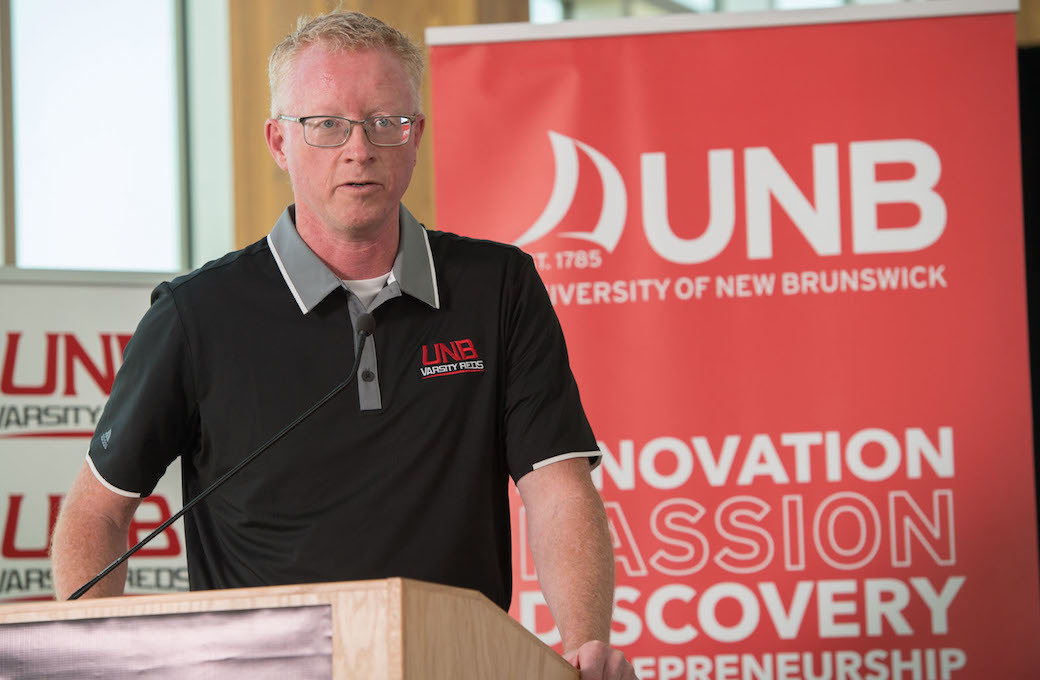Corporate
U SPORTS sits down with one key athlete, coach, and staff member of each U SPORTS athletic program in our interview series “Getting to know…”
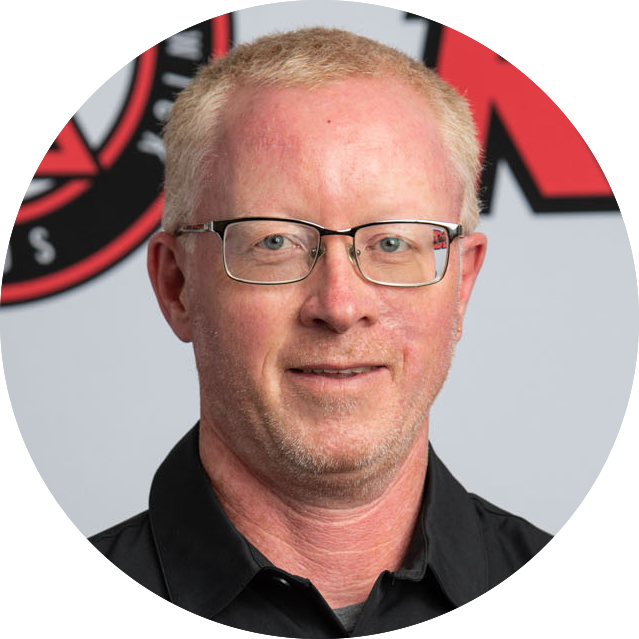
- Name: Andy Campbell
- School: UNB
- Position: Communications Manager, UNB Reds
- Seniority: 4 years
- Previous job/position: Senior Reporter, CTV Atlantic-Fredericton
- Hometown: Oakville, Ont.
1. How did you get to your current position, and what do you enjoy most about our job?
My wife alerted me to the fact the job was open. I didn’t apply, immediately, but after thinking about it, I did. Returning to sports has been awesome. Working with and for student-athletes is inspiring and invigorating. There are daily challenges, which I like, and the learning is non-stop. Being a small part of every team is also amazing. Doing things that help individuals, teams, and the overall group succeed is the most amazing aspect of what I do.
2. Who has had the most influence on your career?
My brother and my wife, who are both are journalists.
Like me, my brother is a passionate sports fan. In fact, Jamie is more of a fan than I am. That’s where it starts. If you don’t like or love what you do, you’re doing it wrong. He puts a great deal of time into preparation and research and personal/professional development. It drives me to do the same.
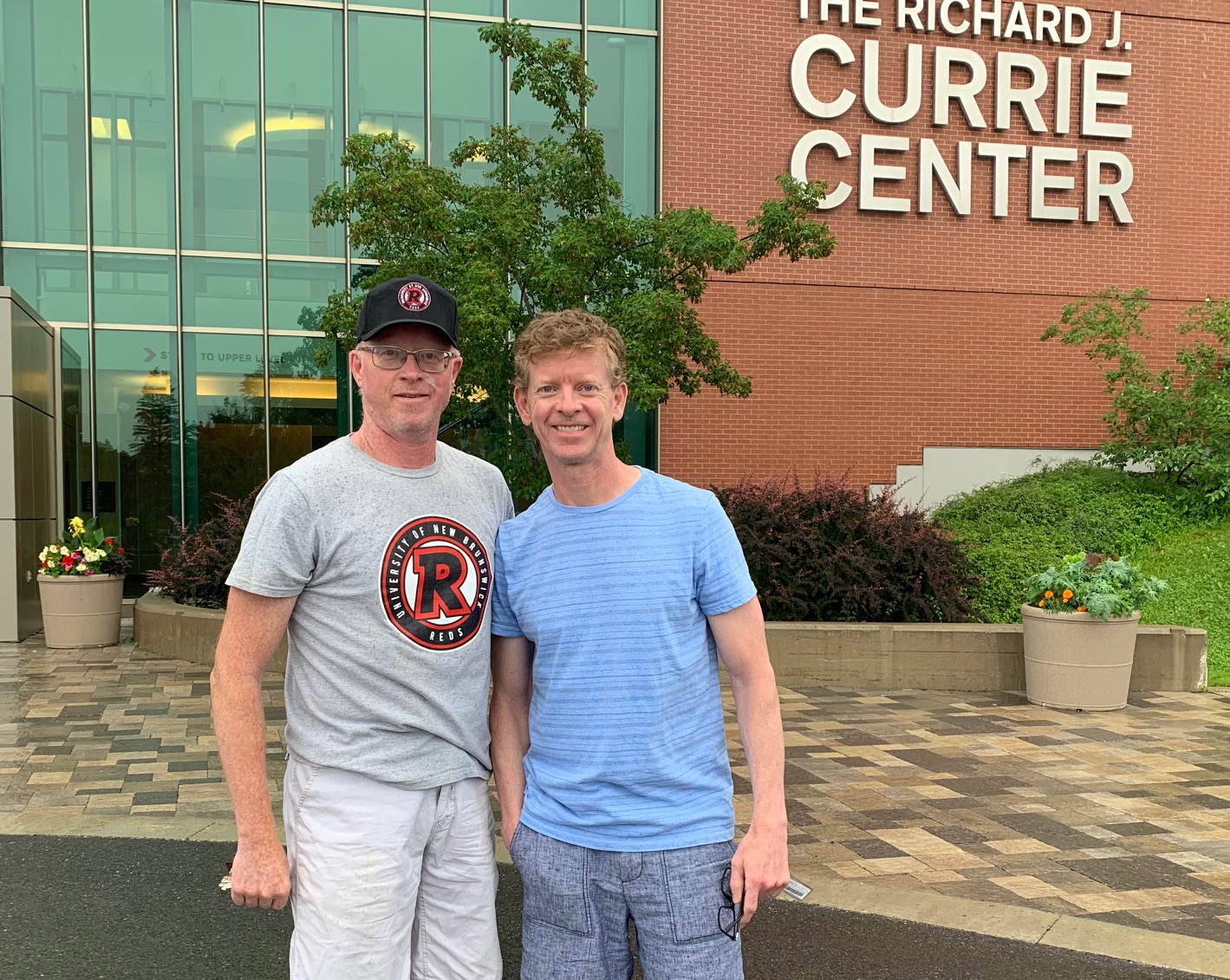
My wife is a sports fan too, but as a communicator, she takes great pride doing her job with integrity and respect. She works incredibly hard to be the best she can be, paying lots of attention to the smallest of details. She is also an inspiration.
3. What is your greatest sporting moment or achievement?
Being a small part of the UNB team that celebrated a national men’s hockey championship on home ice in 2017 was right up there. As was being with the talented and unrelenting yet gracious and respectful-in-defeat men’s soccer team that earned a national silver medal in 2015.
Outside of U SPORTS, calling the play-by-play for the 2001 Calder Cup Champion Saint John Flames was a highlight too.
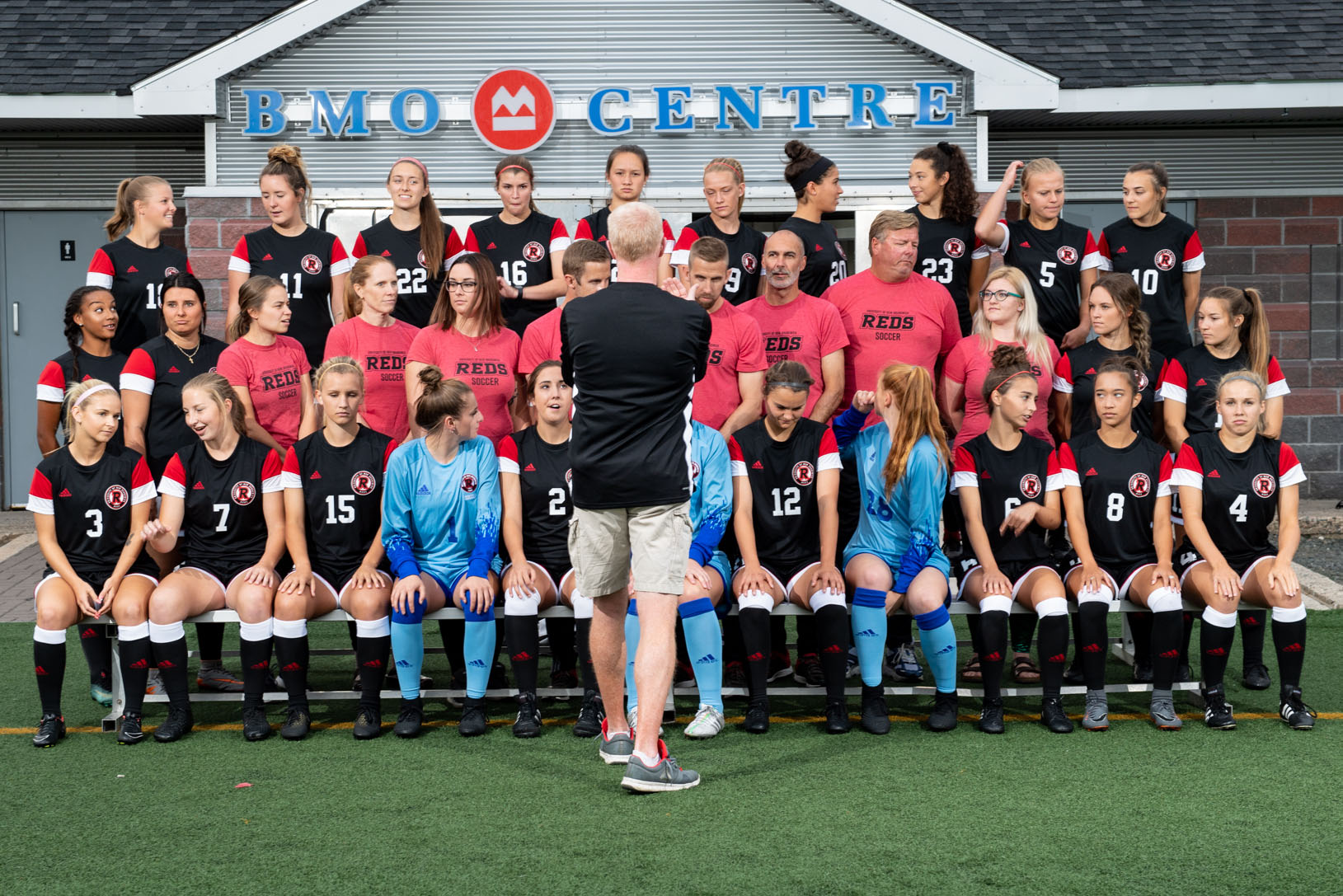
4. How would you define a UNB student-athlete?
Student-athlete, by definition, is a student who is also an athlete. They are incredible individuals, who, for the most part, diligently balance studies, training, competing, travelling, and all the other aspects of life. They do so because they love their chosen sport, and they take great pride in the very difficult balancing act they perform almost 12 months a year.
5. What does success look like for the UNB athletics program?
Success at UNB is seeing a student-athlete walk across the stage on graduation day. It’s seeing more and more student-athletes honoured at our annual Academic All-Canadian celebration. It’s seeing our student-athletes engaging elementary and middle school kids in sport instruction and coaching, or urging them to concentrate on their academics. It’s also about wins, medal, and championships, but the student in ‘student-athlete’ always comes first, and those are the most meaningful successes.
6. What’s the biggest challenge you face in today’s sports world?
In the sports communications world, it’s the ever-changing nature of information dissemination. Right now, it’s changing constantly. Knowing what our core audience, student-athletes, want and on what platforms they consume it, is a big challenge.
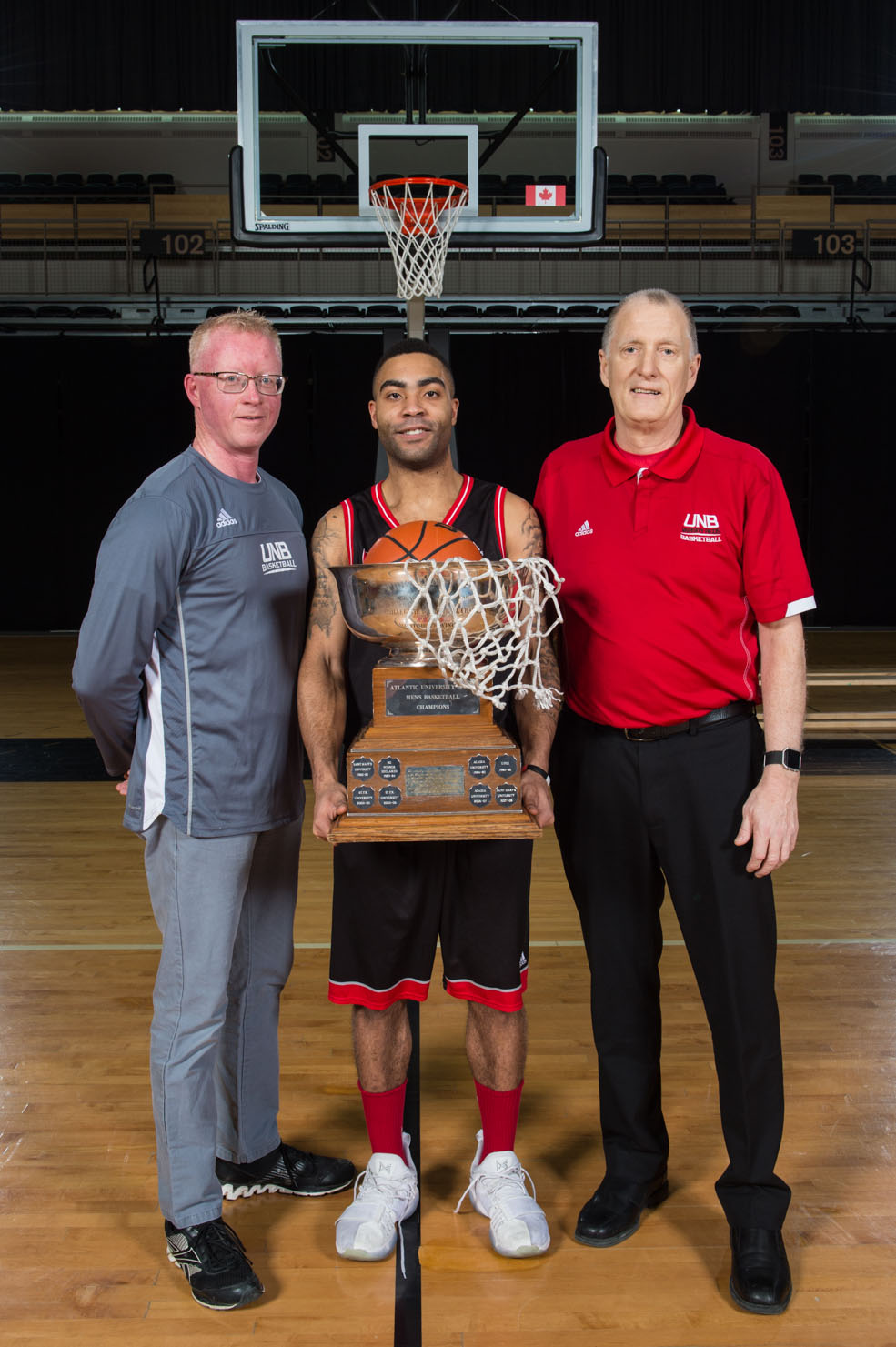
7. Where would you like to see Canadian university sport in the next three to five years?
Obviously, I’d like to see university sport in Canada occupying more of the traditional and modern media landscapes. More exposure would mean more interest, more interest would mean larger attendance figures. But, mostly, I’d like to see our student-athletes continuing to do what they do, regardless of the exposure, with the same dedication, persistence, graciousness and fortitude.
8. If you could sit down for dinner with one person in the sports industry (athlete, coach or manager), who would it be? Why? What would you talk about?
Christine Sinclair, because of what she’s been able to do over such a long period. I’d really like to find out what motivated her early on, when women’s soccer wasn’t in the spotlight like it has been recently, and how or if those motivating factors have changed with Olympic medals and her increasing goals-scored count.
9. What would you say to a sports fan who’s never watched a U SPORTS game/tournament/competition?
Why not?
10. What do you enjoy doing when you’re away from work?
I enjoy spending time with my wife and daughters, both of whom are high-school aged student-athletes. We spend a lot of time at soccer fields and in basketball gyms, so part of my ‘away time’ is very much like my ‘work time.’

